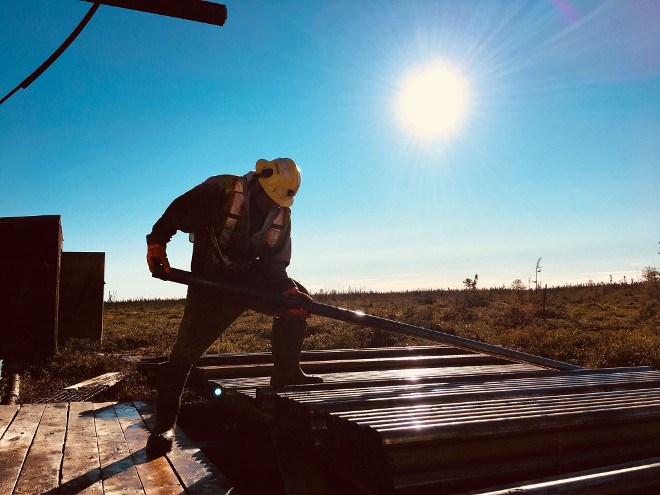Ring of Fire mine developer Noront Resources is urging its shareholders to accept BHP Group's offer to buy its nickel, copper and chromite properties in Ontario's Far North.
BHP, one of the world's largest mining companies, entered the picture in late July with a cash offer of $325 million, or $0.55 cents a share, to best a hostile insider takeover offer made by its Australian rival Wyloo, Noront's biggest shareholder at 25 per cent. Wyloo is owned by Australian mining magnate Andrew Forrest.
In a mere formality, Noront said it has filed a directors' circular recommending its shareholders accept the BHP offer. Noront's board of directors said it represents a 129 per cent higher premium than where Noront's shares were trading before Wyloo made its unsolicited bid at the end of May, and is 75 per cent higher than $0.315 share offer proposed by Wyloo.
“The BHP Offer represents a compelling premium and immediately crystallizes certain value by providing 100 per cent cash consideration for Noront Shares," said Noront CEO Alan Coutts in an Aug. 9 news release.
"Noront’s board of directors recommends that Noront shareholders tender their Noront shares to the BHP offer.
BHP and Wyloo are both after Noront's Eagle's Nest nickel-copper deposit, 500 kilometres of Thunder Bay in the isolated James Bay region. Nickel is a key mineral ingredient in making lithium-ion batteries used in electrical vehicles.
While the battle to take over Noront wages on, the Toronto junior miner is taking heat from environmental groups for not being straight-up with its investors on the high risk, high reward challenges of building a mine in the Far North, especially with opposition from First Nation communities in the region.
A coalition consisting of MiningWatch Canada, Greenpeace Canada, Osgoode Hall Law School's Environmental Justice and Sustainability Clinic, and the Council of Canadians wants the Ontario Securities Commission (OSC) to investigate Noront for its failure to disclose the "significant" First Nation opposition in the area to mine development on Indigenous traditional lands.
In combing through Noront's annual reports, press releases and other public documents they contend there is nothing material that warns Noront shareholders of these risks associated to the company's business.
“Indigenous opposition, and the regulatory risk it poses, can have a material impact,” said Dayna Nadine Scott, associate professor at Osgoode Hall Law School and co-director of the clinic, in a news release.
Scott is working with Neskantaga First Nation, a fly-in community near Noront's deposits that is opposed to mining development in the region.
Neskantaga is one of three First Nation communities that threatened to sue the federal government last spring over its new regional environmental process concerning proposed mining in the area. The communities want a halt to all development in the Ring of Fire in asking for a greater say in how the assessment process in order to preserve their traditional lands and the watershed.
A number of legal groups with the environmental activist connections have lined up in recent months to oppose development unless there is a scientific and traditional knowledge-based protection put in place to safeguard the environment of the James Bay and Hudson's Bay lowlands.
“If known, First Nation opposition to projects should be disclosed to investors. Companies should not be cherry-picking information and only mentioning relationships with communities that support their projects," added Scott.
"That’s why we are urging Ontario regulators to conduct an investigation into Noront’s disclosures in the Ring of Fire, where Indigenous interests are significant and the communities are divided.”
